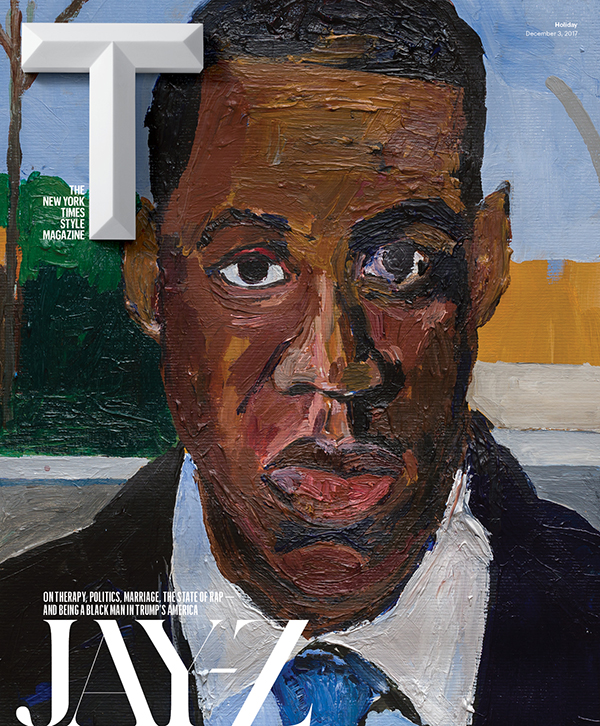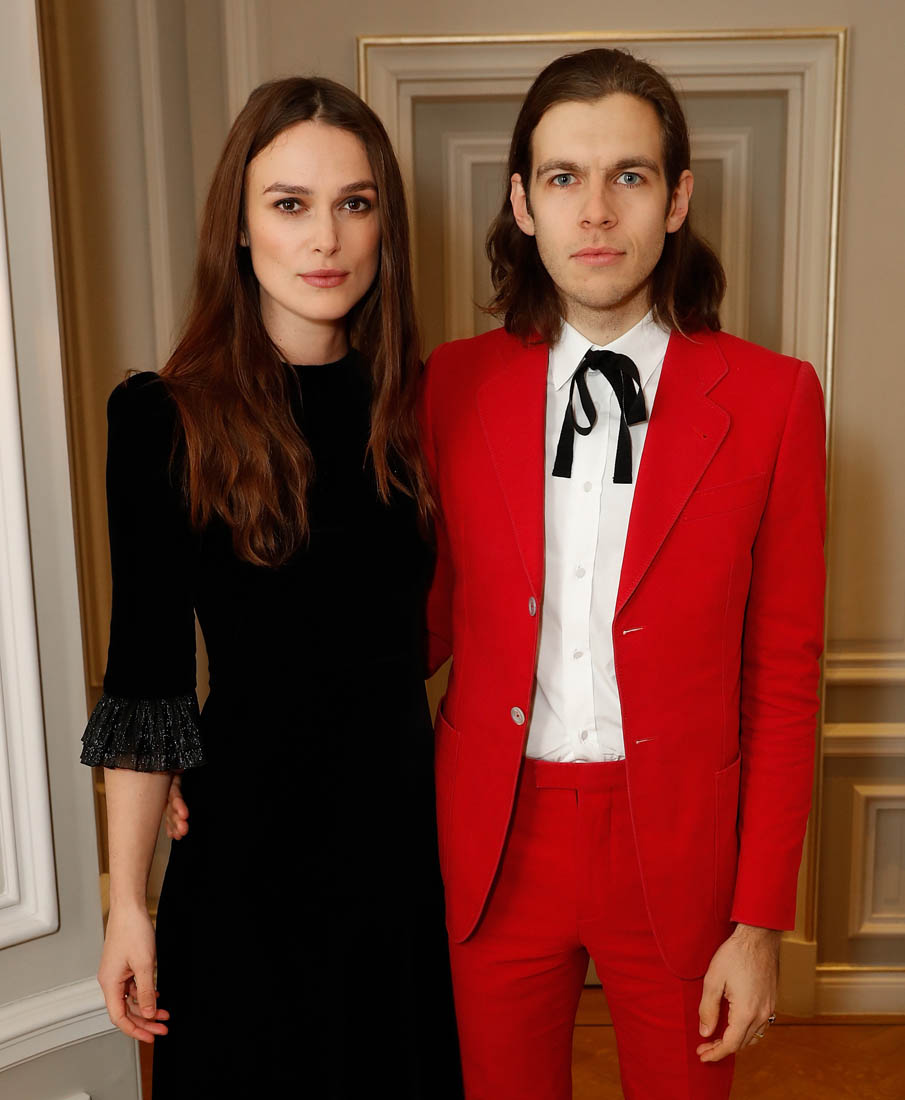Jay-Z’s therapy session



Jay-Z’s interview with Pulitzer award winning journalist Dean Baquet for T Magazine should be digested in full. I read the transcription of their conversation first, complete with annotations by two of my favourite New York Times’ writers, then watched the corresponding video. I recommend you do the same. It’s a dense, nuanced discussion about race, responsibility, self-reflection, infidelity and OJ Simpson. I’m going to attempt to pull out some of the best/ most newsworthy quotes but I almost don’t want to. I won’t do it justice. I want you to ignore what I have to say and just go read two giants ruminate on being black men in Trump’s America.
If you’re still here, let’s first address Jay’s evolution. Much of the conversation is spent dissecting how far Jay has come, musically and emotionally. 4:44 is unlike anything Jay has ever done. When the album first dropped, Lainey called it a companion piece to Lemonade, Beyoncé’s masterpiece. Jay confirms that 4:44 was born while he and Bey were working on a joint album. A. Joint. Album. About their marriage. The bad, ugly parts of their marriage and its near dissolution. I would not trade Lemonade for anything and it is definitively the better album but can you imagine how many minds would have been blown if Jay and Bey had released the details of his infidelity and her rage and revelations through A JOINT ALBUM? Jay says they still have a lot of that music. Do you think we’re going to hear it? There may be no need after what we’ve now heard from them both on the topic of their union but holy sh-t, I WANT TO HEAR IT.
Here’s what Jay says about how difficult it was to confront his sh-t in front of the person he wronged while trying to create an album.
“… it was uncomfortable. And we had a lot of conversations. You know. [I was] really proud of the music she made, and she was really proud of the art I released. And, you know, at the end of the day we really have a healthy respect for one another's craft. I think she's amazing… You know, most people walk away, and like divorce rate is like 50 percent or something ’cause most people can’t see themselves. The hardest thing is seeing pain on someone’s face that you caused, and then have to deal with yourself.”
Baquet never mentions Beyoncé by name, instead he only refers to her to Jay as “your wife.” (Off with his head, Beygency!) I think it’s an attempt to be conversational with Jay on a personal level instead of a purposeful blatant disrespect of our Queen’s name (stand down, Beygency) but I couldn’t help but flinch every time he did it. Especially since Beyoncé is responsible for Jay’s introspection. She’s also responsible for the calibre of work he put out this year. Throughout the interview, Jay talks about going to therapy and how much it helped him. He talks about his feelings, his emotions and his emotional inadequacies. Almost every time I’ve written about 4:44, I’ve mentioned how rare and important it is to see a black man confront these issues publicly. And he’s been doing it so very publicly.
I kept thinking as I was watching the video of this seemingly unscripted 35 minutes of Jay explaining his thoughts that Beyoncé would NEVER do this. Jay-Z has been explaining 4:44 a lot. A LOT. Beyoncé never explains. She would never do this and she shouldn’t have to. Black women are always doing the heavy lifting of emotional labour in relationships. Women are always the ones shouldering the pain and weight of emotional trauma. And in celebrity interviews, it’s the women who usually reach inward and offer the first reflections on traumatic personal heartbreak. It’s about time a man was forced to dig deep to talk about his relationship in every interview. And it’s about time the man doing that digging was a black man.
Jay also talks about another complicated relationship in his life, the one with Kanye West. He reveals that he talked to Kanye recently and told him they were brothers and that he loved him. I’m not tearing up. You’re tearing up. Then, Baquet asks if there’s still tension...
“Yeah, yeah, yeah. But that happens. In the long relationship, you know, hopefully when we're 89 we look at this six months or whatever time and we laugh at that. You know what I'm saying? There's gonna be complications in the relationship that we have to get through. And the only way to get through that is we sit down and have a dialogue and say, ‘These are the things that I'm uncomfortable with. These are the things that are unacceptable to me. This is what I feel.’ I'm sure he feels that I've done things to him as well. You know what I'm saying? These are — I'm not a perfect human being by no stretch.”
That therapy is really working. This quote may get twisted into clickbait stories about how there’s still drama between Jay and Kanye but to me, as a fan of their friendship, it gives me hope for their reconciliation. This is the best Jay/Kanye news we’ve heard all year.
Jay-Z and Dean Baquet talk extensively about race in America, from Colin Kaepernick to the expectations placed on how black people should talk, to O.J. and the obligation for wealthy black people to give back (my fave quote: “until everyone's free, no one's free, and that's just a fact.”) They also tackle the challenges that come with raising grounded, well-adjusted kids while they are growing up lounging on yachts and saving award shows.
Again, Jay answers each question thoughtfully, with maturity and grace. Baquet calls 4:44 “a middle-aged black man’s deeply introspective therapy session put to music.” This entire interview feels like a session of its own and I am HERE for it. There is so much I want to unpack but ain’t nobody got time for that so I’ll just say this: Jay-Z went from selling drugs to rhyming about Big Pimpin to getting a seat at the table (Solange shout out!) as the only black man in a room full of rich white men in his business life and he seems to have a deep understanding of the responsibility that comes with that. It has been beautiful to watch Jay-Z mature into this legit grown-up, a man who is ushering in a new definition of mainstream black masculinity – at last.
You can read and watch the full T Magazine feature here. I promise it’s worth your time.

